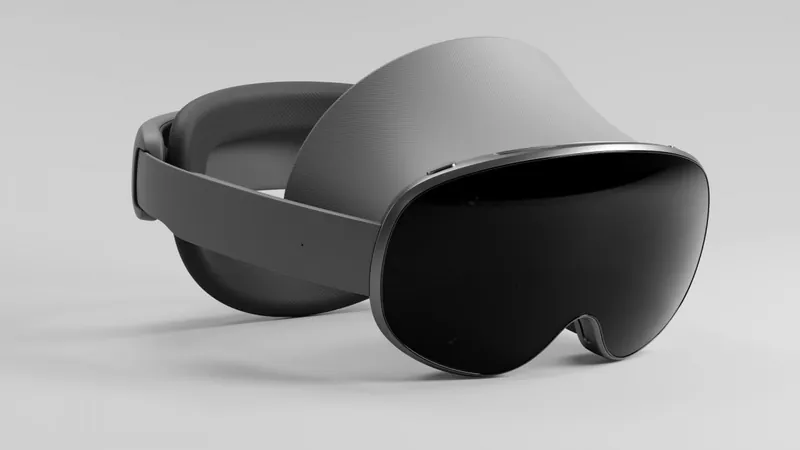
Groundbreaking Syn-One Test Revolutionizes Diagnosis of Synucleinopathies!
2024-12-22
Author: Olivia
Introduction
In a game-changing study published in *Frontiers in Neurology*, researchers have unveiled the extraordinary capabilities of the Syn-One Test (developed by CND Life Sciences) for diagnosing synucleinopathies, including Parkinson's disease (PD), multiple system atrophy (MSA), and Lewy body dementia (DLB). This innovative skin biopsy test detects phosphorylated alpha-synuclein and has demonstrated a remarkable ability to alter patient diagnosis and treatment plans.
Impact on Clinical Decision-Making
Shockingly, the study revealed that the Syn-One Test influenced clinical decision-making in a staggering 78% of the cases examined. Specifically, 66% of patients experienced changes to their diagnosis, while 55% saw modifications to their treatment, irrespective of whether the test results were positive or negative. Notably, the most significant diagnostic shifts were observed in patients with parkinsonism accompanied by action tremor (93%), those experiencing postural instability and gait difficulties (90%), and individuals with parkinsonism who also displayed significant cognitive impairment (76%).
Expert Insights
Dr. Jonathan R. Isaacson, MD, who led the research at the Center for Autonomic and Peripheral Nerve Disorders at Beth Israel Deaconess Medical Center (BIDMC), emphasized the importance of accurate and timely diagnosis in these conditions. "The landscape of Parkinson's disease and its related disorders is often clouded by misdiagnosis or delayed diagnosis—especially in the early and atypical stages. Our findings starkly highlight how the Syn-One test can become a cornerstone in reshaping diagnosis and management, ensuring patients access suitable treatment," he stated.
Study Methodology
The study's robust methodology involved a retrospective chart review, analyzing data from 97 patients who underwent the Syn-One Test at a tertiary care facility. This included 54 patients with PD, 19 with DLB, and 24 with MSA, all suspected of having a synucleinopathy. Dr. Todd Levine, chief medical officer at CND Life Sciences, stressed the significance of the findings, declaring, "The Syn-One Test provides neurologists with a reliable and straightforward tool to diagnose these complex disorders, establishing its relevance in modern clinical practice."
Limitations and Future Directions
However, the researchers acknowledged several limitations in their study, such as the retrospective design and relatively small sample size. These factors may introduce biases and also complicate comparisons with other diagnostic tools like biofluid tests or imaging techniques. Further investigations are warranted to determine the overall impact of the test results on the patient-physician relationship and how these findings may translate to larger, more diverse populations.
Broader Implications
Dr. Roy Freeman, coauthor of the study and a specialist in the field, commented, "We present compelling evidence that simple skin biopsies can enhance clinical decision-making processes within academic settings, potentially serving as a powerful diagnostic tool for community healthcare providers dealing with these challenging conditions."
Conclusion
Dr. Sameea Husain-Wilson, a neurologist and director of movement disorder neurology at the Marcus Neuroscience Institute of Baptist Health, highlighted the Syn-One Test's role in defining the presence or absence of alpha-synuclein, a critical factor for movement disorder specialists. "Understanding the subtle distinctions between PD and other synucleinopathies is essential for proper diagnosis and treatment," she explained.
As the medical community eagerly awaits further validation of these findings, the Syn-One Test heralds a new era of clarity and efficiency in the diagnosis and management of neurodegenerative disorders. Will this groundbreaking test reshape how we approach conditions like Parkinson's disease? One thing is certain: the future of neurology is here!









 Brasil (PT)
Brasil (PT)
 Canada (EN)
Canada (EN)
 Chile (ES)
Chile (ES)
 España (ES)
España (ES)
 France (FR)
France (FR)
 Hong Kong (EN)
Hong Kong (EN)
 Italia (IT)
Italia (IT)
 日本 (JA)
日本 (JA)
 Magyarország (HU)
Magyarország (HU)
 Norge (NO)
Norge (NO)
 Polska (PL)
Polska (PL)
 Schweiz (DE)
Schweiz (DE)
 Singapore (EN)
Singapore (EN)
 Sverige (SV)
Sverige (SV)
 Suomi (FI)
Suomi (FI)
 Türkiye (TR)
Türkiye (TR)